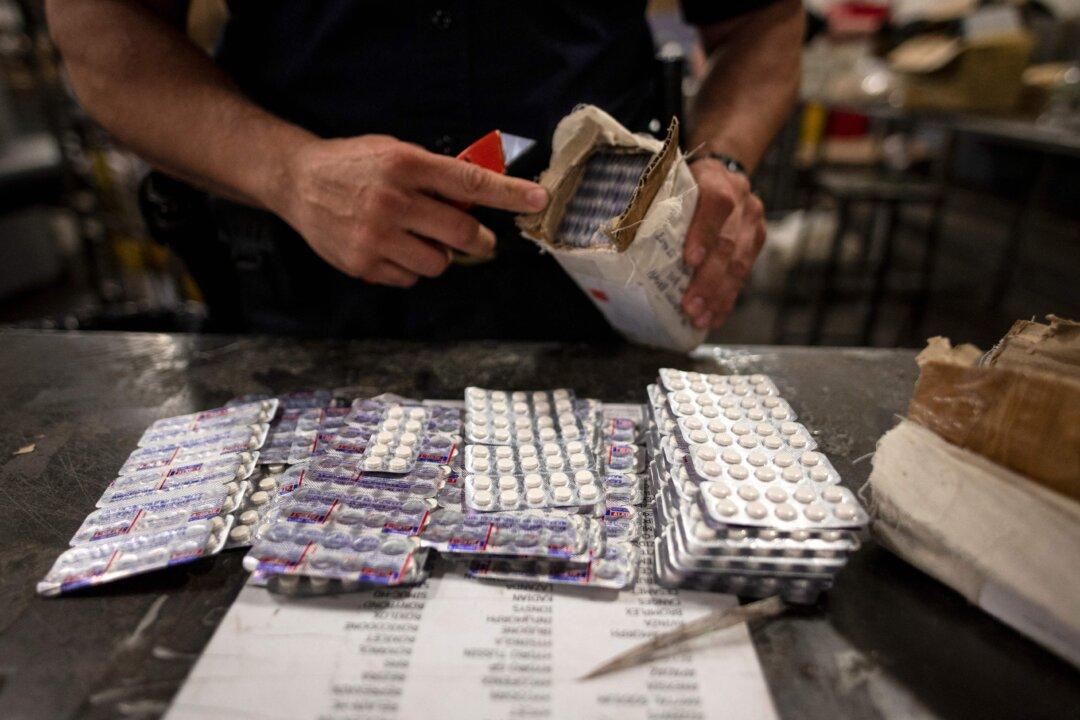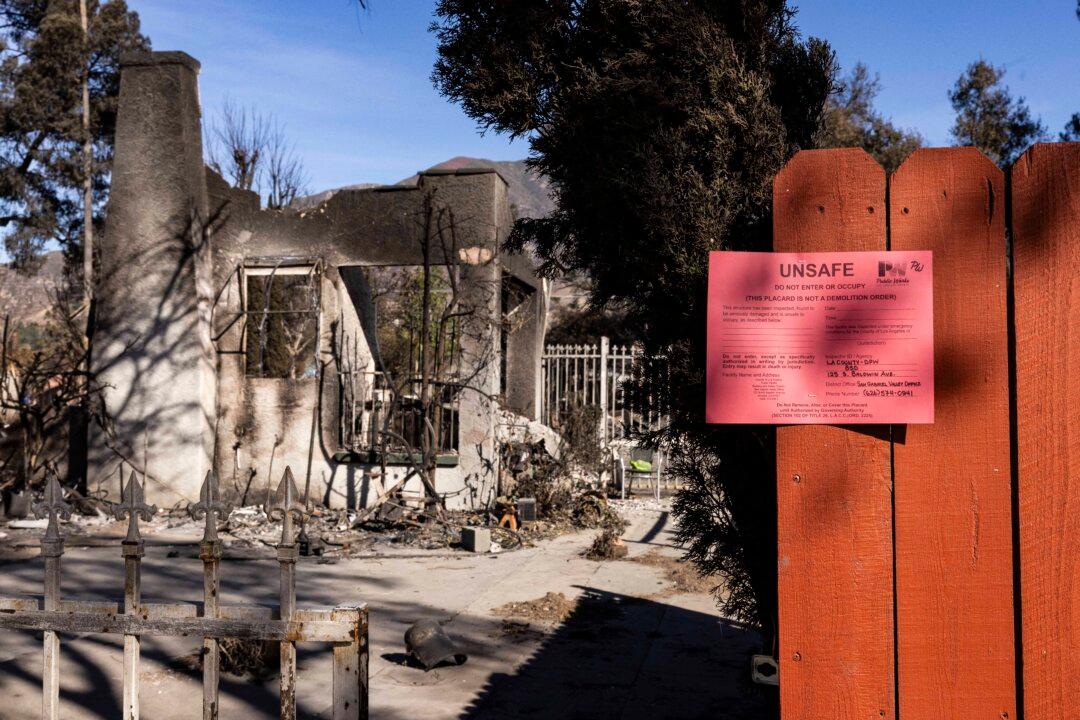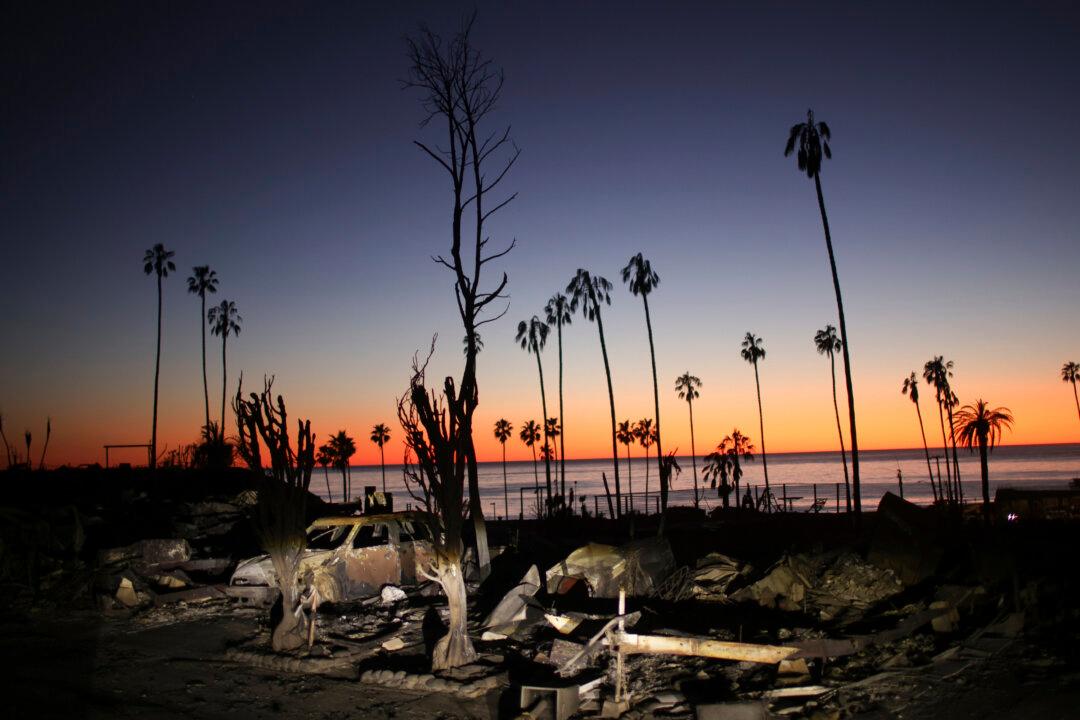A grand jury indicted four company officials of Hubei Aoks Bio-Tech Co., alleging the company sold controlled substances and chemicals used in fentanyl manufacturing in Los Angeles and throughout the United States from Nov. 24, 2016, to Nov. 2, 2023.
Chinese officials said the four defendants have been arrested on similar criminal charges in China.
The defendants can’t be extradited to Los Angeles, according to a spokesman for federal prosecutors.
“There’s no extradition treaty between the People’s Republic of China and the United States,” U.S. Attorney’s Office spokesman Ciaran McEvoy told The Epoch Times. “Beyond that, I can’t comment.”
Those indicted include company director Xuening Gao, 38, who faces two conspiracy counts.
Another defendant, Guangzhou Gao, 36, the operator of the company’s cryptocurrency wallets, is suspected of using the wallets to sell fentanyl precursor chemicals. He faces six felony counts, including four related to distribution of illegal substances.
Yajing Li, 30, a sales manager, was charged with six felonies, including conspiracy and distribution of a listed chemical.
Another sales manager, who uses the alias “Jessie Lee,” faces two conspiracy counts.
According to the indictment, Xuening Gao and Guangzhou Gao allegedly sold controlled substances and chemicals used in making fentanyl for more than a decade throughout the United States.
Both men are linked to chemical companies operating in China, including one that sold fentanyl and acetyl-fentanyl that was imported into the United States starting in 2015, according to prosecutors.
China’s Ministry of Public Security recently told the U.S. Department of Justice that the country took legal action against the defendants in their own investigation and dissolved the company, according to U.S. Attorney Martin Estrada’s office in Los Angeles.

“This indictment alleges a corporation, its director and sales manager reaped the benefits of knowingly exporting materials that helped fuel the fentanyl crisis in our nation,” Estrada said in a statement Thursday.
The company allegedly exported chemicals to at least 100 countries and advertised its products on various social media platforms, including WhatsApp, Instagram, X, LinkedIn, Pinterest, and chemical e-commerce sites, according to prosecutors.
The company’s chemicals were most popular in Mexico, where they were sold in 25-kilogram fiber drums, each of which could produce 10 million fentanyl pills, according to federal officials.
Company salespeople at times allegedly tried to entice undercover agents by offering more chemicals that they claimed would sell well, and offered gifts and guarantees that their chemicals would be successfully imported into the United States, according to federal officials.
Prosecutors also alleged that the companies hide their employees’ identities by using false names and profile photos, encrypted messaging, and payments through cryptocurrency wallets.

If the defendants were tried and convicted in the U.S., they would face a mandatory minimum sentence of 10 years in prison and a maximum penalty of life in prison, according to the U.S. Attorney’s Office.
The United States is in the grip of an opioid overdose epidemic. Nearly 161,000 Americans died from opioid-related overdoses in 2021 and 2022, and it’s the nation’s leading cause of death for people ages 18 to 45, according to prosecutors.
Fentanyl is a highly addictive synthetic opioid that is about 50 times more potent than heroin.
Making fentanyl starts with raw chemicals that are often mixed with other substances, including xylazine—also known on the street as “tranq”—a tranquilizer available in liquid and powder forms, according to the U.S. Attorney’s Office. Xylazine is approved for sale by the U.S. Food and Drug Administration for veterinary use, not human use. The drug is used for sedation, anesthesia, muscle relaxation, and pain relief for horses, cattle, and other animals.
Drug dealers use xylazine to enhance or prolong the effects of fentanyl and increase profits, according to court documents.

Drug users who inject xylazine, or a mixture of it, often develop dead tissue or disfiguring wounds, and sometimes require amputation.
The life-saving opioid overdose reversal treatment naloxone can reverse the effects of fentanyl but not xylazine, prosecutors say.
In 2023, 30 percent of all fentanyl powder and 6 percent of all fentanyl pills seized by the Drug Enforcement Administration (DEA) contained the tranquilizer.
“Fentanyl precursors and adulterants are primarily sourced from chemical manufacturing and distribution companies in China,” the indictment said.







